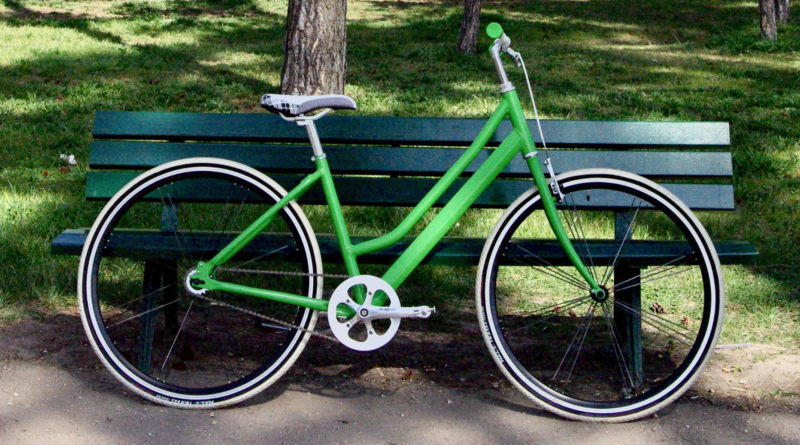Can You Go Car-Free? Maybe.
I’m not the only person in the finance world that actively avoids driving. Piggy from Bitches Get Riches sums it up more succinctly than I can: “Cars are noisy, dirty, and expensive.” I already laid out the arguments against car ownership in an earlier post, but it won’t mean much if you really actually do need to have a car.
So let’s consider it: can you actually go car-free?
Go Car-Free if You Live in the City
Statistically speaking, you’re already likely to live somewhere with ample transit options. 84% of Americans live in an urban area, which is a lot more than what I was expecting. That means for every five Americans, only one of them actually lives somewhere without some kind of railway, bus, van, or sidewalk system in place. This also means that you have no excuse for owning a car when the much cheaper, healthier, and more environmentally-friendly options are staring you in the face.
If you happen to live with a disability that makes it hard to get around, several cities have already thought of that and can accommodate you further. In Boston, for example, you can get a transit pass for less with a TAP card. You can also use the RIDE system, which is an awesome part of the MBTA that will actually come pick you up if you can’t use the buses or trolleys. Check out what transportation options are available in your city; guaranteed there’s something out there to help you get around.
Go Car-Free if You Can Use a Bike at All
Now let’s look at the 16% of people who do not live in an urban area. Can you fine ruralites still get around without a car?
If you live within walking distance of your work, parks, stores, and schools: yes. If your town is awesome and gives you access to public transit like buses, subways, and railways: yes. If you live in the middle of nowhere or in a food desert: you can’t walk, but can you bike? It’s scary to do at first, but so was driving at first. At least this way you’re staving off health problems and run a much lower risk of vehicular manslaughter. A lot of people can’t go completely car-free, but CAN cut down on the amount of driving.
And I have a confession to make from yesterday’s post: I said that I couldn’t have biked from my childhood home out in the Fearsville boonies, which was actually WRONG. A close friend of mine kindly reminded me of a fellow high school classmate (Class of 2012!) who
1. Lived just down the road from me, and
2. Did, in fact, bike everywhere.
And she was right: I remember seeing that classmate peddling hard on the road as cars would slow down to politely pass him. Sure, folks liked to fly on those country roads, but only if no one else was around. These folks were also all Midwesterners. They weren’t about to do something as impolite as run a cyclist over.
My point is, if you’re physically able to ride a bike, using that to get around might be more accessible than you think.
Go Car-Free if You’re Still Building Wealth
I got some feedback on yesterday’s post from a lovely gent who’s already build his wealth and went rural. He noted that his household has more cars than people, but also that the cost of owning these cars is irrelevant enough to not matter. And he’s right. Once you reach that million-dollar mark and getting $40,000 each year from your investments, a couple thousand spent on your car is perfectly worth it. The cost of ownership goes down even further the more money you have (relative to percentages, of course). Once you get to that point we’re working towards, having a car is great!
Until you reach that point, though, invest that money instead. Saving two thousand extra dollars means you have an extra five figures after five years; if you invest that into an index fund that grows to twelve thousand. Give that another five years and it’s over thirty thousand. And ten more years? SIX FIGURE WEALTH. You don’t even have to rework your whole budget to do it! Your money more than doubles at that rate, specifically giving you a 286% return. Here’s the table if you don’t believe me:
THE NUMBERS
| Year | Amount of $ (assuming $2k saved and a 10% return) |
| 1 | $2000 |
| 2 | $4,200 |
| 3 | $6,620 |
| 4 | $9,282 |
| 5 | $12,210 |
| 6 | $15,431 |
| 7 | $18,974 |
| 8 | $22,872 |
| 9 | $27,159 |
| 10 | $31,875 |
| 11 | $37,062 |
| 12 | $42,769 |
| 13 | $49,045 |
| 14 | $55,950 |
| 15 | $63,545 |
| 16 | $71,899 |
| 17 | $81,089 |
| 18 | $91,198 |
| 19 | $102,318 |
| 20 | $114,550 |
Putting that extra amount in with your other investments only makes this timeline accelerate. Ten thousand compounds faster than eight. Twenty thousand compounds faster than eighteen. That’s why the rich just keep getting richer: they have compound interest on their side, with the money they earned yesterday in interest making more money today. Going car-free now can make you that much wealthier later.
So what else might keep you from going car-free?

